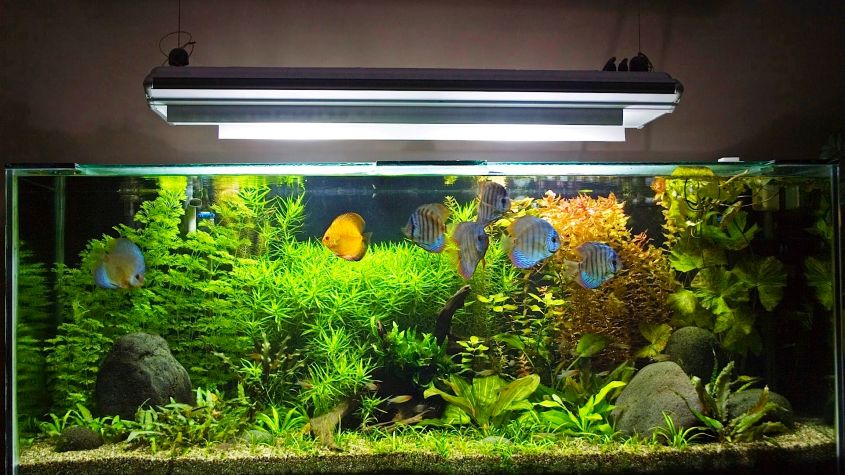Darsazma News Hub
Your go-to source for the latest news and insightful information.
Aquarium Care for the Forgetful Fish Parent
Effortless aquarium maintenance tips for the busy fish parent! Keep your underwater friends thriving without the stress. Dive in now!
Top 5 Easy Aquarium Maintenance Tips for the Busy Fish Parent
As a busy fish parent, keeping your aquarium in pristine condition may seem overwhelming. However, following these easy aquarium maintenance tips can help you maintain a thriving aquatic environment with minimal time investment. Start by implementing a weekly water change. Aim to change 20-30% of the water each week to remove toxins and replenish essential minerals. This simple task not only keeps your fish healthy but also reduces the buildup of algae in your tank. For more detailed insights, check out this resource.
Next, invest in a quality aquarium test kit to monitor your water parameters. Regular testing for levels of ammonia, nitrite, nitrate, and pH will ensure your fish are swimming in a balanced ecosystem. Schedule these tests biweekly, which won’t take up much of your time but will provide you with valuable insights into your tank's health. Additionally, consider automating feeding with a fish feeder; this device can dispense food at set intervals, allowing you to maintain a consistent feeding routine even on the busiest days. For more tips, you can visit this article.

How to Create a Stress-Free Feeding Schedule for Your Fish
Creating a stress-free feeding schedule for your fish begins with understanding their feeding habits and needs. Different species of fish have varying dietary requirements, so it's crucial to research the specific needs of your fish. Generally, it’s recommended to feed smaller fish two to three times a day, while larger species may only require once daily feeding. Establish a consistent routine that aligns with your fish's natural feeding patterns, which will not only keep them healthy but also reduce stress. For more details on fish feeding habits, check out this guide.
In addition to frequency, the type of food you choose is vital for ensuring a stress-free feeding schedule. Opt for high-quality fish food that meets the nutritional needs of your specific types of fish. Avoid overfeeding, as this can lead to stress and health issues; a good rule of thumb is to provide only what they can consume in a few minutes. Moreover, consider incorporating a variety of foods, such as flakes, pellets, and live or frozen options, to keep your fish engaged and healthy. To learn more about feeding practices, visit this resource.
What to Do When You Forget to Change the Water: A Quick Guide
Forgetting to change the water in your aquarium or for your houseplants can lead to several issues, from algae growth to wilting plants. The first step is to assess the situation. Check the condition of the water in your aquarium or the soil moisture in your plants. If the water is murky or smells bad, it’s crucial to act quickly. For aquariums, you might want to perform a partial water change to stabilize the environment. For plants, ensure to check the roots for any signs of rot if you’ve let them dry out for too long.
Once you've assessed the conditions, take proactive steps to rectify the oversight. For aquariums, remove any uneaten food and perform a water change of at least 25% to dilute harmful toxins. For houseplants, it’s essential to water them thoroughly, ensuring that excess water drains away to prevent root rot. You can enhance your plants' recovery by adding a diluted liquid fertilizer to promote regrowth. For more information on plant care, consider visiting Better Homes & Gardens for expert tips.